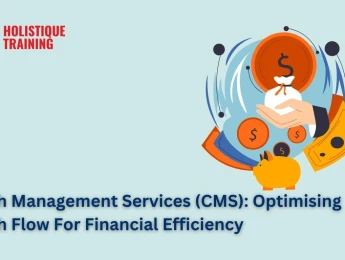Unfortunately, many companies have failed simply because they were unable to innovate in response to shifting market dynamics. At any moment, a competitor can introduce a new product that disrupts your existing offerings. Likewise, emerging technologies can render your core business model obsolete overnight. In today’s rapidly evolving landscape, the ability to innovate is not optional—it is essential for survival. Organizations must continuously evaluate and adopt new technologies and processes to remain competitive. This responsibility often falls on project managers, technical leads, and engineers. As such, it is crucial to develop the capability to understand, manage, and communicate project financing principles clearly and effectively across all stakeholders.
You will learn all the relevant skills needed for practical finance during the course. This includes planning and persuasively presenting your ideas and projects so they can be evaluated and a decision can be made on the proposed investments. You will gain valuable skills in using Excel to manipulate and assess data and understand funding sources, capital funding and capital investment analysis.
Upon completion of this course, participants will be able to:
- Provide analysis and interpretation of financial statements.
- Show an understanding of the most common costing practices.
- Understand cost behaviour.
- Select the best technique for estimation.
- Implement the chosen technique.
- Produce cash flow forecasting with known effective tools.
- Use Excel in producing investment appraisal models.
- Confidently prepare and present capital investment appraisals.
It would be most beneficial for:
- Engineering managers and professionals
- Project managers
- Procurement and supply chain professionals
- Technical team members
- Cost and management accountants
- Investment department staff
- Planning team members
- Anyone looking to upskill for future career advancement.
Teaching takes place in a variety of settings, including face-to-face classroom teaching. It will ensure that participants can expand their knowledge of the subject and increase their skills. The course is delivered via various methods by a specialist tutor. This will include PowerPoint presentations, reviewing articles and other relevant materials, group or individual exercises and discussions. There may be some independent work set, and the course will require submitting articles to demonstrate understanding and an end-of-course test. Note-taking is encouraged, and you are welcome to use electronic devices.
The course manual will form part of the learning but will give you references for the future. You are encouraged to ask questions and, if needed, spend time one-on-one with your tutor to review any issues. You will network with peers in similar roles during your time in the classroom.
Day 5 of each course is reserved for a Q&A session, which may occur off-site. For 10-day courses, this also applies to day 10
Section 1: The Fundamentals of Business Finance
- The fundamentals of financial strategy and competition
- A look at the disruption business models cause
- Capital and project investment in context
- The structure and function of financial statements
- Why measuring the strength of financial performance matters
- What is the difference between cash flow and profit?
Section 2: Interpretation and Analysis of Finances
- The traditional system of financial analysis
- Financial performance - how to analyse then improve
- Asset management efficiency- how to analyse then improve
- Capital structure and risk - Analysing and interpreting
- A financial appraisal from the investor perspective
- What are key cash flow ratios
Section 3: A Pricing, Costs and Profit Masterclass
- Cost behaviour - What is it, and how do we understand it
- The cost-volume-profit relationship analysis
- Break-even and gross margin - mastering the concepts
- Costing concepts including cost classification
- Cost reduction - taking the strategic approach
- Cost and value approaches and pricing - how do they apply
- Use Excel to build your pricing model
Section 4: Investment Projects Forecasting Methods
- What are the fundamentals of forecasting
- Statistical analysis - using Excel as a tool
- Time, series, analysis - the techniques of revenue forecasting
- Reasonable project cost estimations - the quality techniques
- Project cost estimation - the common approaches
- Project cash flows - how to identify relevant factors
- Excel financial modelling - best practice and principles
Section 5: Investment Appraisals: Preparing and Presenting
- Business funding: sources and cost
- The optimal capital structure and funding strategy
- Project finance from the bank perspective
- Capital investment decision-making masterclass
- What is discounted cash flow analysis, and how can we master it?
- Investment appraisal model using Excel
- Investment project appraisal - preparing and presenting
Upon successful completion of this training course, delegates will be awarded a Holistique Training Certificate of Completion. For those who attend and complete the online training course, a Holistique Training e-Certificate will be provided.
Holistique Training Certificates are accredited by the British Assessment Council (BAC) and The CPD Certification Service (CPD), and are certified under ISO 9001, ISO 21001, and ISO 29993 standards.
CPD credits for this course are granted by our Certificates and will be reflected on the Holistique Training Certificate of Completion. In accordance with the standards of The CPD Certification Service, one CPD credit is awarded per hour of course attendance. A maximum of 50 CPD credits can be claimed for any single course we currently offer.
- Course Code IND04-101
- Course Format Classroom, Online,
- Duration 10 days














